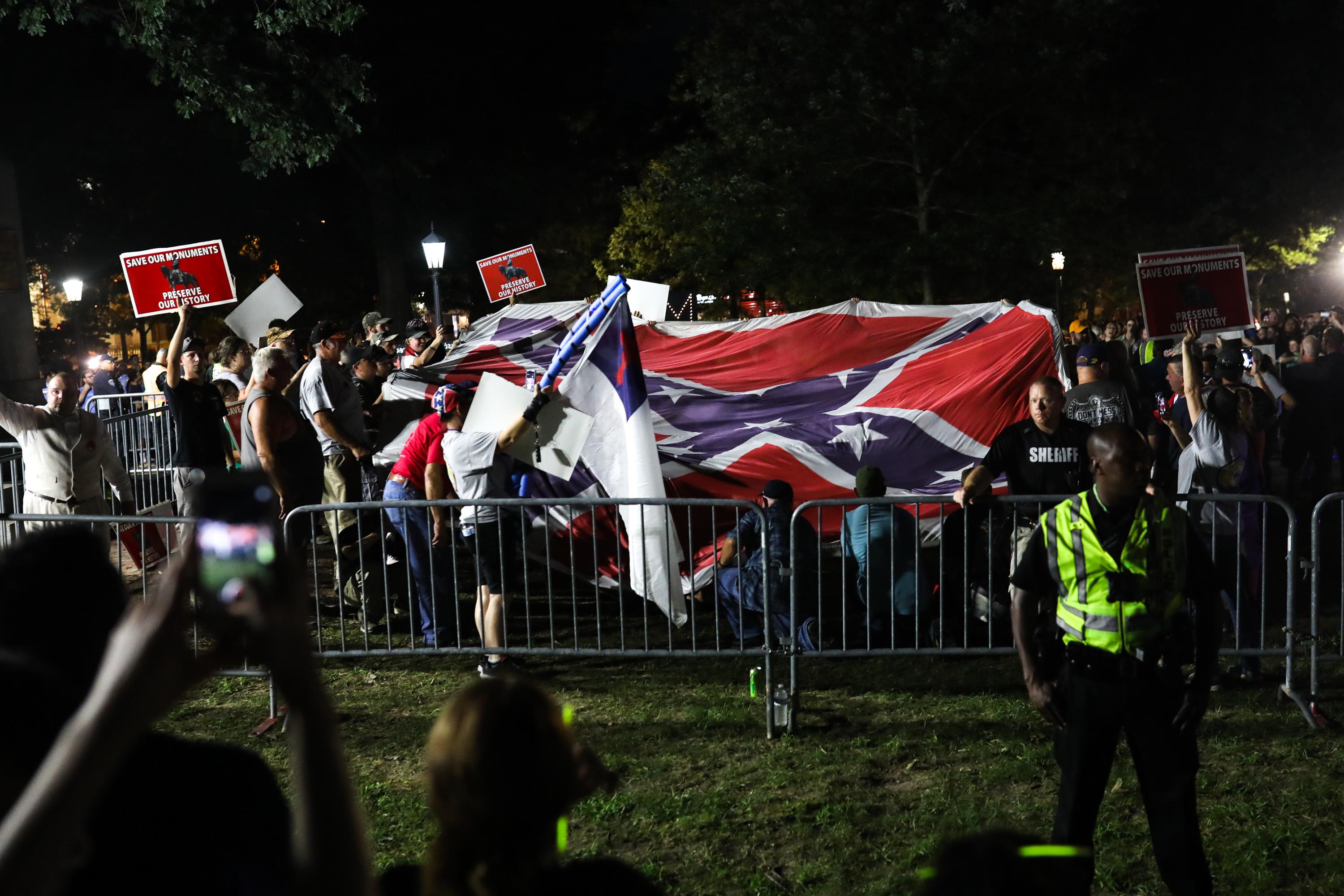In a tearful address to the public, the mayor of Wake Forest, North Carolina, said Wednesday night that the city was canceling its annual Christmas parade because of “outside agitators” who might protest a local Confederate group.
In the video, Mayor Vivian Jones acknowledged that the decision would be an unpopular one but said the town felt it could not protect its citizens from the possibility of a clash between pro-Confederacy and anti-racism demonstrators.
“For most of us, our annual Christmas parade is about spending time with friends and family and celebrating the spirit of the season,” she said. “Yet there are some outside our community whose sole purpose is to use the occasion to promote their political agenda without any regard for the health and safety of our citizens. The [parade organizers] made the wise decision to deny these outside agitators the opportunity to use Wake Forest as a platform to spread hate and incite violence.”
The decision revolves around the inclusion of the Sons and Daughters of the Confederacy. According to the city, the group has operated a float in the parade for the past two decades. The float usually includes people in antebellum costumes and a prominent display of the Confederate battle flag on a banner. In its statement, the town said that the group had “participated peacefully and without incident.”
Police told the parade’s organizers that they had learned of “growing numbers of outside groups” that planned to attend either to support or protest the group, according to the city. The police did not mention any specific threats of violence, but it appears their attention was drawn to social media outrage directed by groups protesting the University of North Carolina at Chapel Hill, 40 miles away.
On the UNC campus, critics have condemned the university’s decision to pay a Confederate group $2.5 million to move a statue known as “Silent Sam” off campus as part of a legal settlement. One of the Silent Sam protest groups pointed out the Sons of Confederate Veterans group’s participation in the Christmas parade in the Raleigh suburb of Garner, which canceled its parade a week ago. Eventually, the focus turned to Wake Forest.
The city, in its official statement, nodded to the controversial nature of the display. “Make no mistake about it—the Town of Wake Forest is extremely sensitive to the emotion the confederate flag stirs among those on both sides of this issue,” it said. “We recognize that for some the flag represents racism, hatred and bigotry, while others see it as a representation of Southern heritage protected as a matter of freedom of speech/freedom of expression.”
Jones’ statement did not distinguish between anti- and pro-Confederacy protesters but directed blame at outsiders more generally. “For over 70 years, our community Christmas parade has been a beloved family tradition,” Jones said. “Not once in all that time has our event been anything less than a peaceful family-friendly celebration that highlights the wonderful spirit of our community. But sadly, times have changed.”
“Groups that contact us about their plans to protest tend to follow our rules and regulations,” Wake Forest Police Chief Jeff Leonard said in the press release. “We’re concerned about outside agitators that don’t notify us. Radicals don’t typically call ahead. These aren’t area residents we’re talking about. These are professional protesters who have no regard for the safety and well-being of others.”
The announcement was met by a public outcry on social media. According to CBS 17, at least one man marched through downtown Wake Forest with a sign protesting the cancellation on Thursday. The city, which has a population of 42,000, has said it will soon start planning next year’s parade.
In 2015, the mass murder of nine black worshipers by a white supremacist at a church in Charleston, South Carolina, sparked a debate over the display of the Confederate flag and Confederate memorials. That debate was renewed after the Unite the Right Rally in Charlottesville, Virginia, in 2017, when clashes between right-wing hate groups, including neo-Confederate groups, and counterprotesters turned violent. One woman was killed when an avowed neo-Nazi with an affinity for Confederate symbols drove his car into a crowd of counterprotesters.
